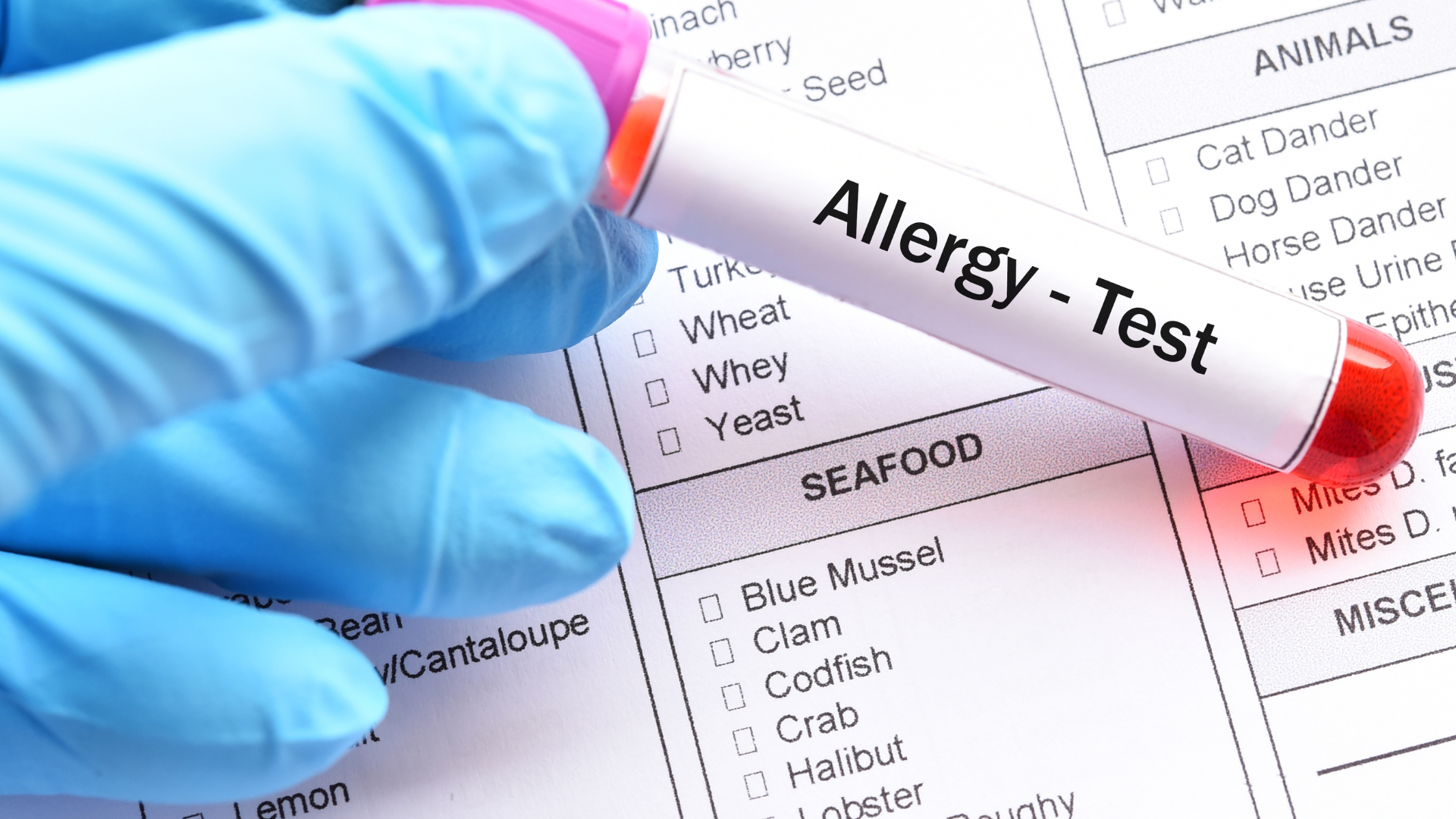In April 2021, Awanui expanded the electronic ordering function to make it easier for GPs to request allergy tests (allergen-specific immunoglobulin E (sIgE) tests and skin prick tests) for their patients, which until then had to be ordered manually on a laboratory request form.
“Introducing a tab in the GP e-ordering system for more specific allergy tests followed a review by an Immunology Registrar in 2019. Previously the process for requesting these tests had been very labour intensive for both requestor and the laboratory staff,” says Awanui Labs Immunology laboratory scientist Catherine Littlechild.
A specific IgE test screens for an allergy (type 1 hypersensitivity) to specific substances in response to a patient’s acute or chronic allergy symptoms.
“The aim of expanding the e-ordering capability was to provide more guidance for requestors so they could select the clinically appropriate tests for their patients. Another aim was reducing the time needed to enter each test listed on the request form into the Laboratory Information Management System (LIMS).”
Examining the outcomes of e-ordering
Catherine joined Awanui Labs in 2017 returning to her hometown after seven years in the UK where she had worked in chemistry and immunology at Addenbrookes hospital in Cambridge when they scaled up their team. She describes working in immunology as doing a bit of everything.
“Last year I decided to enrol in the Fellowship programme with the New Zealand Institute of Medical Laboratory Science, and as I already had my Master of Science in medical laboratory science, writing a thesis was the best way to go.
“Medical Director Richard Steele suggested finding out if the allergy e-ordering solution was assisting GPs with requesting clinically appropriate tests for specific allergens and how it was impacting the workload at the laboratory.
“The study analysed data in a three month range from both 2019 and 2022, so before and after the COVID-19 response, and we wanted to compare and contrast the results for GPs in each of these periods.”
Raising more questions
In her study, Catherine describes the findings of her study as unexpected. Analysis of the data found while the overall number of requests by GPs for specific IgE testing did increase over these time periods, the percentage of positive results for patients with an allergy did not.
“This raised questions as to whether expanding e-ordering for GPs, and making it easier to request an allergy test, actually had improved clinical outcomes as anticipated,” says Catherine.
“One of the questions raised is whether the actual tests available to order, not the mechanism used to request them, needs to be reviewed. Should more guidance be given to GPs for them to request the right tests for their patients, and not use allergy testing just as a screen, but rather to confirm if someone has a suspected allergy after showing symptoms.”
Catherine points to the special test panel for suspected allergic rhinitis for common causes of allergies to such things as animals, grass and house dust mite which are often being ordered when patients report a running nose or cold like symptoms. She says if it is seasonal, then it could be well an allergy and it is quite appropriate to be ordering these tests. However, results should always be interpreted in relation to a patient’s clinical features, allergic history and other tests used to assess their allergic status.
“We would also like to review whether GPs are providing allergy-relevant clinical details for the patient with their request and get feedback from ‘high allergen requestors’ to help understand the possible reasons why some GPs request more allergens than others,” says Catherine.
“Another consideration is whether to review the allergens listed in the e-ordering tab itself and should these be changed or even reduced.”
How labs can lead
“The lab may benefit from providing additional information around allergy testing and why the patient’s history of symptoms should be carefully considered before specific IgE testing is performed. It is about stopping GPs requesting a test when they do not need to and save them, the patient and the lab time and resources to analyse them.”
Catherine has now been awarded her Fellowship with the NZILMS and would like to continue her research with supervisors Immunopathologist Arthur Price and Immunology Head of Department Paul Tustin.
She would also like to continue working with Richard, as Medical Director, regarding the findings and questions from her study and the ways Awanui can better support GPs to order the appropriate allergy tests for their patients, when they are needed, to deliver better health outcomes.
“Catherine’s work on the allergy eOrdering system has been invaluable by shedding a light on the impact of our efforts to improve both the ease and appropriateness of allergy testing” says Dr Steele.
“Like many processes within the laboratory, it is though using this sort of information which improvements both the workflow, and better patient outcomes can occur.”
